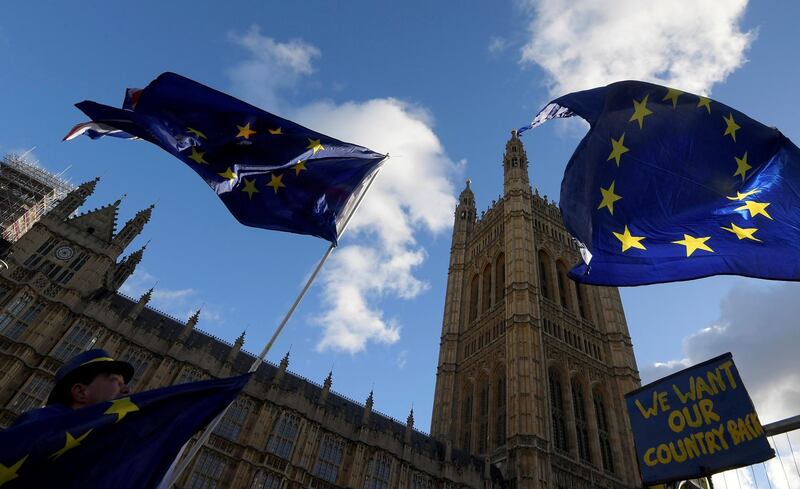In early May last year, during a debate in the United Kingdom prior to the Brexit referendum, I wrote a column trying to sum up my own views on the matter as a deeply interested outsider. At that time, I was undecided, though I cited the impact that Brexit would have on relations between the UK and the Republic of Ireland as one of my key concerns. I couldn't imagine how on Earth a "hard" border, with passport checks, regulations on the movement of goods and the likes, could be introduced.
Before the vote in June, I had come off the fence. If I had had a vote, I would have voted to remain, albeit reluctantly since the European Union is so obviously in need of reform. Yet the issue of UK-Irish relations and the need, in my view, to preserve the Common Travel Area between the UK, Ireland and Britain’s Crown dependencies, like my other home, the Channel Island of Jersey, was one of the key topics that tipped the balance.
I felt that this topic had received far too little attention in the debate. I was concerned about the danger of conflict returning to Northern Ireland. I felt that those favouring Brexit were being extraordinarily negligent (at best) in failing to give sufficient thought to this thorny problem. I felt it had the potential to pose real difficulties in the event they did leave the EU.
The result of last May’s British general election led to the government of prime minister Theresa May becoming dependent for its survival on a political party from Northern Ireland’s Protestant community whose raison d’etre, to put it simplistically, includes a deep suspicion of the Irish Republic.
As we have seen over the past few weeks, the issue of borders in Ireland very nearly brought the negotiations between the UK and EU to a standstill. While an agreement to move forward was reached in the nick of time, the issue itself hasn’t been solved. Further friction is probable.
____________________
Read more from Opinion
[ Why did Trump make his Jerusalem decision? The answer is rooted in US domestic politics ]
[ Coherent pressure against the Iranian manipulation of the Yemen conflict is vital ]
[ In praise of Salvator Mundi and this time of year ]
____________________
Whatever view one might take of current political debate in the UK, it's difficult to avoid the conclusion that Brexit-related issues are occupying an extraordinary amount of time and energy, generating more heat than light. In other EU countries, one reads, there is something approaching a sense of utter bemusement as it becomes apparent that the British government might not have completed detailed studies of the implications of Brexit. Ministers tell parliament they have been done, only to say they have not a few days later. That's mildly confusing, to say the least – unless, of course, the results of any studies are so deeply pessimistic that the government prefers not to share them. It is also clear that the members of the British cabinet have not yet reached a united position on the nature of agreement they seek to achieve. Instead, the phrase "fighting like cats in a sack" comes to mind.
Metaphorically shrugging their shoulders, other EU states have made it clear that they view the British approach as being akin to self-harm. While wanting a suitable agreement with the UK, they’re getting on with life.
That sense of bemusement isn't confined to the EU. British ministers and officials continue to frequently visit the Gulf to talk about a variety of issues, including Middle East politics, trade, defence and more. This week, foreign minister Boris Johnson is in Abu Dhabi, as is Charles Bowman, the Lord Mayor of London. They are welcomed, of course; the normal courteous exchange of views continues. Key to their discussions will be a bid to strengthen UK-UAE trade and financial ties. Given the UK's fixation with Brexit, though, there may perhaps be a perception here that London is no longer as relevant to the UAE as it might wish.





